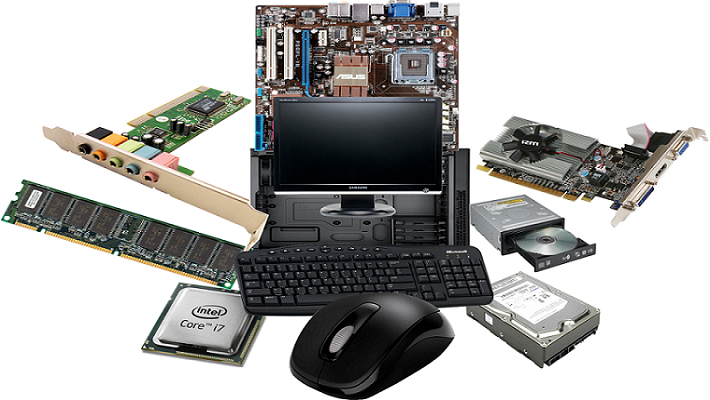The Indian Startup Ecosystem for Hardware Startups
India’s startup ecosystem has traditionally been known for its thriving software and technology startups. However, in recent years, the hardware sector has also gained significant momentum, with a growing number of hardware startups making their mark. This shift reflects India’s expanding innovation landscape and the increasing importance of hardware in various sectors, including electronics, IoT (Internet of Things), robotics, and consumer electronics.

Growing Support and Infrastructure
One of the key drivers of this change is the growing support from both the government and private sectors. Initiatives such as the “Make in India” campaign and various government schemes have been instrumental in encouraging hardware innovation. The government has introduced policies to support manufacturing and research, including the Production Linked Incentive (PLI) scheme, which provides financial incentives for the production of electronics and other hardware components within the country.
Additionally, India has seen the emergence of several hardware-focused incubators and accelerators, such as the Indian Electronics and Semiconductor Association (IESA) and T-Hub. These organisations provide crucial resources, including mentoring, funding, and networking opportunities, specifically tailored to hardware startups. Such support is crucial in helping these startups navigate the complex landscape of hardware development, which often involves significant R&D and manufacturing challenges.
Investment Landscape
Investment in hardware startups has also seen a positive shift. Venture capitalists and angel investors, who traditionally preferred software-based ventures, are increasingly recognizing the potential of hardware innovations. This change is driven by the growing demand for advanced technology solutions across various industries. Investors are particularly interested in startups working on cutting-edge technologies such as IoT devices, wearable technology, and smart home solutions.
Furthermore, platforms like the National Investment and Infrastructure Fund (NIIF) and other venture funds are providing the necessary capital for hardware startups to scale their operations. The influx of investment is enabling these startups to enhance their R&D capabilities, scale production, and expand their market reach.
Challenges and Opportunities
Despite the positive developments, hardware startups in India face several challenges. One of the primary issues is the high cost of production and the need for substantial initial investment. Hardware startups must navigate complex supply chains and manufacturing processes, which can be resource-intensive and require substantial capital.
Additionally, intellectual property (IP) protection remains a concern. Hardware innovations often involve unique designs and technologies that require robust IP strategies to protect against infringement. Ensuring effective IP protection can be a significant challenge, particularly for startups with limited resources.
However, these challenges also present opportunities. The need for advanced manufacturing capabilities and innovative designs opens doors for collaboration with established companies and research institutions. Partnerships with larger firms can provide hardware startups with the necessary resources and expertise to overcome production hurdles and accelerate their growth.
The Future Outlook
Looking ahead, the future of hardware startups in India appears promising. The increasing adoption of technology in everyday life and the rise of smart cities and smart homes create a fertile ground for hardware innovation. As the ecosystem continues to evolve, we can expect more hardware startups to emerge, driven by advancements in technologies such as AI, machine learning, and automation.
The continued support from the government, coupled with a growing investor interest and the establishment of dedicated hardware innovation hubs, will play a crucial role in shaping the future of hardware startups in India. With the right support and infrastructure, Indian hardware startups are well-positioned to make a significant impact on the global stage, contributing to the country’s reputation as a hub for technological innovation.
What are the key government initiatives supporting hardware startups in India?
The Indian government has implemented several key initiatives to support and boost hardware startups, aiming to enhance the nation’s manufacturing capabilities and foster innovation. One of the most prominent initiatives is the “Make in India” campaign, which encourages domestic manufacturing and aims to position India as a global manufacturing hub. This initiative includes various schemes and incentives designed to support hardware startups, such as the Production Linked Incentive (PLI) scheme. The PLI scheme provides financial incentives to manufacturers in sectors like electronics, semiconductors, and other hardware components, aiming to increase domestic production and reduce import dependency. Additionally, the “Atmanirbhar Bharat” (Self-Reliant India) initiative further complements these efforts by promoting local innovation and entrepreneurship through financial support and policy reforms. The government has also established several technology parks and innovation hubs, like the Electronics Manufacturing Clusters (EMCs), to provide infrastructure and support services tailored to hardware startups. These initiatives collectively create a conducive environment for hardware innovation, offering startups not only financial incentives but also access to critical resources and infrastructure necessary for scaling their operations.
How do Indian hardware startups typically secure funding?
Indian hardware startups typically secure funding through a variety of channels, reflecting the diverse nature of the startup ecosystem. Venture capital (VC) firms are a major source of funding, with many VCs showing increased interest in hardware innovations due to their potential for high returns and market impact. Angel investors also play a crucial role, often providing early-stage capital and mentoring to help startups refine their products and business models. In addition to private investors, hardware startups can access government schemes and grants designed to support manufacturing and technology development, such as the Production Linked Incentive (PLI) scheme and various innovation funds. Additionally, startup accelerators and incubators dedicated to hardware, like those run by the Indian Electronics and Semiconductor Association (IESA) and T-Hub, offer funding, resources, and networking opportunities. Crowdfunding platforms have also become an avenue for hardware startups to raise capital, allowing them to gauge market interest and secure funding from a broad base of individual investors. This multifaceted approach to funding helps hardware startups navigate the capital-intensive nature of their industry and advance their innovations.

Add a Comment